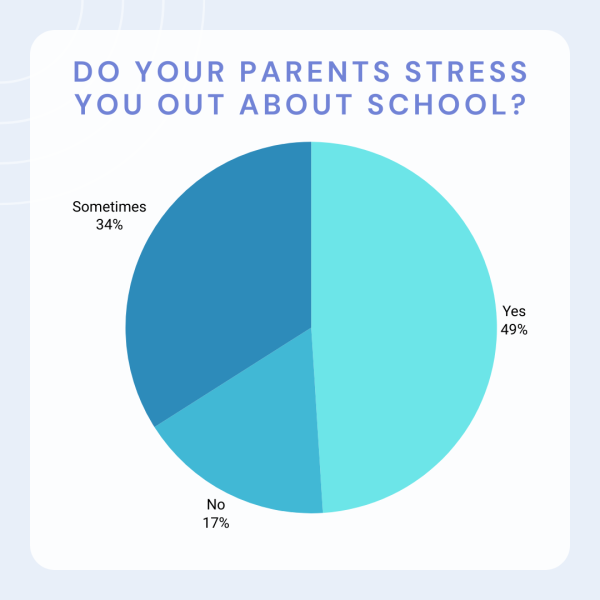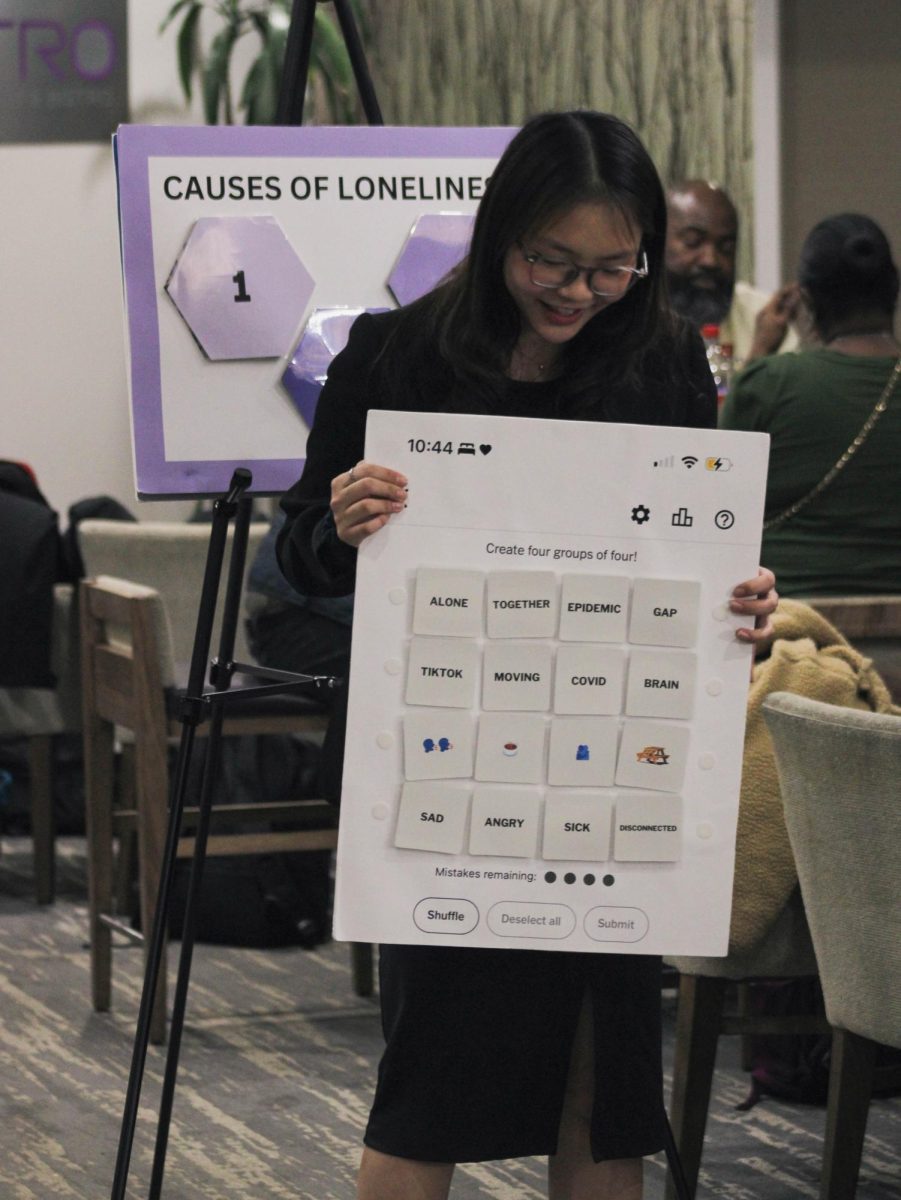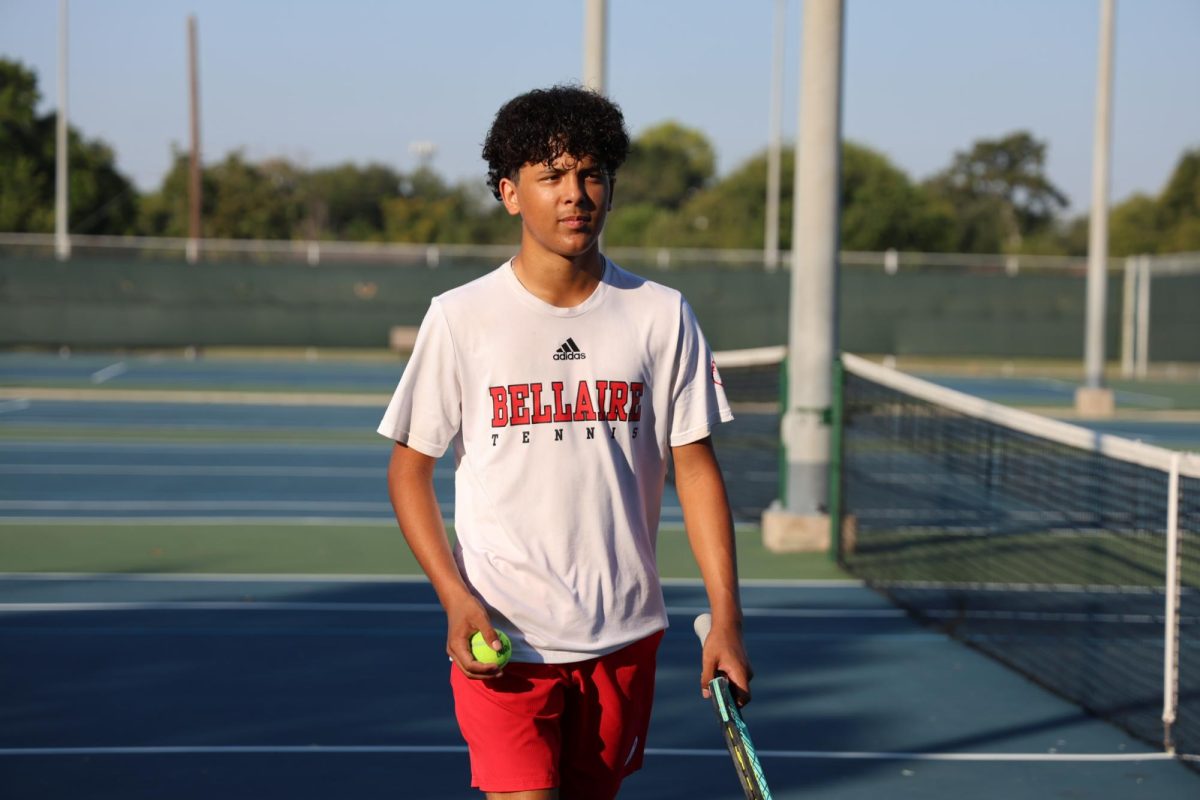His parents are from Pakistan and have instilled in him the importance of higher education. He knows that his parents expect him to make the most of being in America.
“I think they really push me to strive and have a good school life because they believe it’s very important for my future and that it will lead to more opportunities,” senior Gul Ahmed said. “They expect me to make all A’s, or I am not allowed to do anything, which is a pro in some ways. I think it’s a way to make sure that I have the best future possible when it comes to my education.”
Ahmed said that so far he is following their wishes.
”Considering I’m going into computer science, UT Dallas is the plan so far,” Ahmed said. “But from what I can tell, my entire family expects me to go to a college and not mess it up.”
Ahmed is only one of many students whose parents have shaped their education – some from as early as middle school. Some of these parents have a bigger role than others. And of course, some are stricter.
Freshman Audrey Lawrence’s parents have encouraged her to take high school level courses since middle school. She took geometry in eighth grade. When her parents are working their full time jobs, takes care of herself and her two younger sisters, who are 11 and 12.
“I think one of the reasons why they have such a loose control over me [is] because I’ve shown myself as being responsible enough to take care of myself and my siblings,” Lawrence said. “They believe that if I can do that on my own, I can do my homework on my own and I can handle my grades on my own.”
“They really want me to get a good education,” Lawrence said. “They pushed me to take algebra when I was in seventh grade because they really wanted me to get ahead. And even though it’s been hard, they’ve been really supportive.”
She is also on the swim team and a member of four clubs: Red Bird Productions, Fellowship of Christian Athletes, Medical Club, and Psychology Club.
Lawrence’s parents want to see her succeed, but they don’t really place any restrictions on her. However, her parents do regularly check her grades on PowerSchool and will notify her if they see something unusual.
“It doesn’t matter if it’s through academics, if it’s through performing arts, even if it’s through something that they never thought I would do, like if I joined mechanics or something, as long as I find my thing, and I can make that into something successful, they’re happy,” Lawrence said.
Keeping a good life balance of school and extracurricular activities is important to the Lawrence family.
“I feel my role is to encourage Audrey to always give it her everything. If she feels like she has done her very best, then I support whatever the outcome,” Lawrence’s mother Julia said. “I believe in a well rounded education, which doesn’t always mean in the classroom.”

Like Lawrence, sophomore Jacob Schwartz’s parents tell him it’s up to him to motivate himself to do well in school, so they also don’t restrict him.
“As long as I’m not failing in anything, they don’t really care,” Schwartz said. “They’re very hands off and barely ever check my grades. If I was falling behind, they’d probably just offer to help me make a schedule to get back on track.”
Though Schwartz sees his parents being more hands-off as them not caring, Schwartz’s father David sees it as “providing as much support as [Schwartz] needs, at a particular time.”
The hands off role does not mean that the parents don’t care. It just means that they are giving their child the freedom to decide for themselves what to do and then live with the consequences.
“Overall, a parent’s role in their child’s education is to set a culture that clearly values school and learning as an important part of their childhood, and to provide support to help their child succeed in school,” Schwartz’s father said. “By high school, kids should be pretty independent with their work, and they should seek help when they need it. Ideally parents shouldn’t have to check up on their children with regards to grades, homework, etc in high school.”
In addition, junior Addison Wolf’s parents are supportive of her taking advanced classes and planning around what she needs to do for school. They expect her to do her best, not turn in late work, and that she’s not irresponsible with her time. Nonetheless, they expect her to do well on her own, without much outside help.
“They’re supportive of my ability to self regulate all of that,” Wolf said. “They are not so supportive, however, when it comes to paying for tutoring or any kind of outside of school services that would help with my classes or SAT tutoring or things like that. So there’s like a limit but they are supportive. If I was struggling, they would want me to get in contact with a family member or a different person who could volunteer to help me or just tell me to figure it out myself.”
Though she usually feels supported by them, Wolf said she wishes her parents put less pressure on her when she’s struggling because that is when she needs support the most.
“If anything, I put the most pressure on myself,” Wolf said. “The pressure that affects my education more than anything comes from the [education] system itself rather than my parents.”










